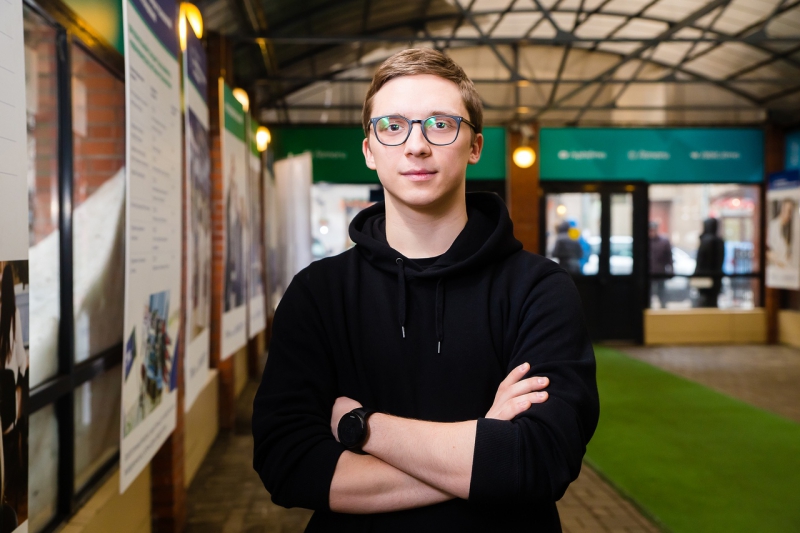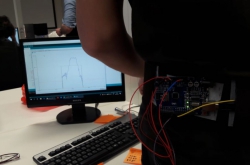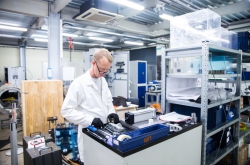About the Winter Program
I got my Bachelor's degree at ITMO University's Faculty of Photonics and Optical Computing. Since my very first year I understood that I wanted to do more than just physics, and soon got interested in entrepreneurship. I joined a team that solved business cases and included students from Saint Petersburg State University. For four years, we've been participating in different championships. In 2016 we won the championship in St. Petersburg; we also solved cases for such renowned consulting companies as McKinsey and Oliver Wyman, as well as corporations such as Mars, Unilever, MTS, Raiffeisenbank and others. When I enrolled in my Master's program, I had more experience in business and consulting than in physics, even though I did an internship in Ireland during the last year of my Bachelor's program. At that time, I was working on a research project in collaboration with our German colleagues, and went to Trinity College as part of an Erasmus program.
When I was already a Master’s student, I realized that I want to work on the international level. I started to search for opportunities to improve my English and communicate with international specialists and students, a short-term trip being one of the options. I found the winter school I participated in on an aggregator website. It took place at the Prague University of Finance and Administration and focused on international business. The program took 10 days from January 22 till 31. On the whole, it featured some 20 hours of lectures and a final exam.
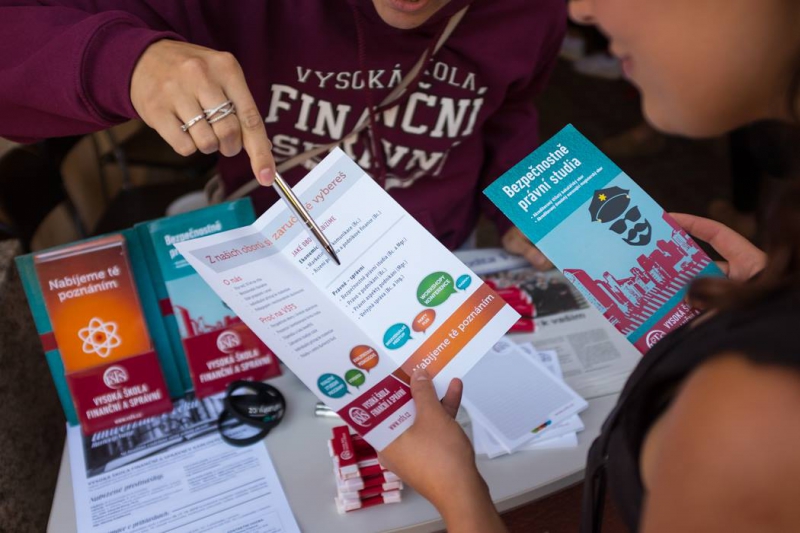
On lectures
The lecture topics were quite diverse. For example, we studied the activities of international organizations who supervise international businesses, touched upon the issues of business communication and learned the rules of international negotiations. We started with the basics, like how people of different nations perceive various actions. The lecturer who gave us this course mostly worked with Czech students, so this time he had an opportunity to compare different reactions on live examples.
You could feel the difference in training. Participants from Europe had already acquired some knowledge in the field of international business at their universities, for example, they knew a lot about the operation of the World Trade Organization and the World Bank, which I knew next to nothing about. Another major difference is the format of lectures: in Russia, they are usually a monologue while in Europe they are always dialogues. It is common for a lecturer to ask the audience some questions and then have the students discuss them for like 30 minutes.
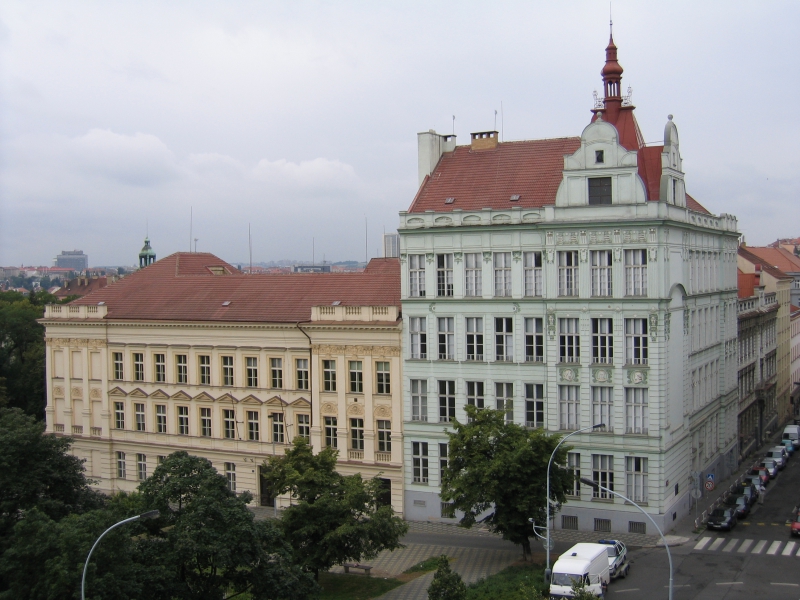
At the winter school, we studied many cases from international practice. For one, we researched how companies make their way to the international market and the obstacles they face, as well as the solutions that help them secure a foothold. One such case was about an American oil company that entered the Asian market, where few understood the value of oil, and started to produce oil lamps to get the people's interest. This way, they solved their sales issue by offering a new product that consumed their own fuel. The lecturer also gave us tests that were sometimes a problem even for nationals of the countries which the tests were about.
On the whole, some 50 students participated in the school, half of them being Chinese. There were also people from Germany, Mexico, Chile, and Thailand. I was really glad to be the only person who spoke Russian, as I had no chance but to practice my English. This has been a great experience, because when people go on an exchange program, there's always some Russian-speaking community, and you risk spending all your time with them instead of socializing with the international crowd. By the way, we had to prove our level of English, and the certificate I got at ITMO University back in my Bachelor's years was a great help.
Exams and bonus credits
We had to take a final exam at the end, which got us three ECTS to transfer to our home universities. I got Grade A, which put me in the top 10% of the students. We were expecting the exam to be an easy one, which it wasn't: it lasted for an hour and a half and featured four tests with 40 questions each. Most of the program's participants got B and C grades. One of the tests involved questions that we never studied at lectures, which made it even harder.
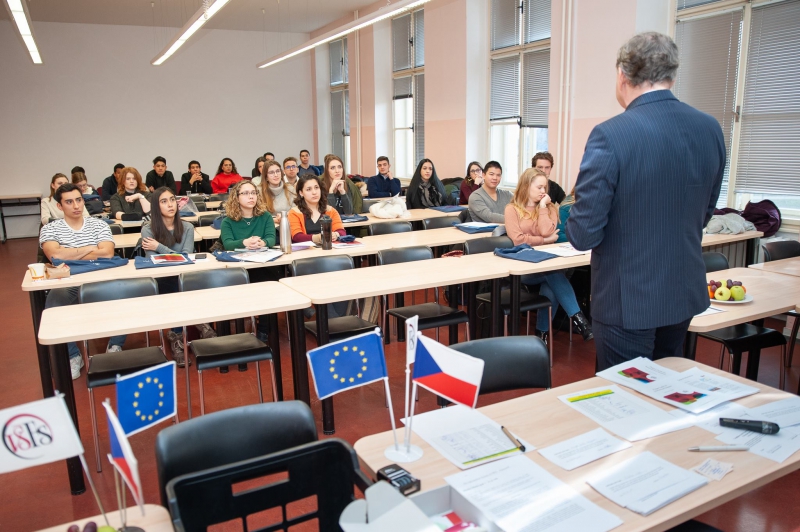
LEGO, beer and a Medieval feast
In addition to the lectures, we also had a very diverse cultural program which included tours of historic landmarks and visits to places such as a brewery and a LEGO museum. We also got to visit the CzechTrade organization, which supports Czech companies that focus on export and import, and learn about international trade from its representatives.
Our organizers who all worked for the Prague University of Finance and Administration were really cool. They encouraged us to make the most of our free time: to go bowling, participate in a historic quest in the city, or go to the local karaoke which was in fact opened by the same people who launched the bar Poison in St. Petersburg. All the participants stayed at the same student hotel, which is located in the same building as the student dorms.
The final day of the school was dedicated to the closing and awards ceremonies. We had our farewell banquet at a very special place: a restaurant in the Old Town that's located in a cellar of an old castle. They had no electricity there, only candles, and nothing like emergency exit signs and so on, but everyone had to eat with their hands like in the old days. It was like a real Medieval feast.
On getting financial help from ITMO's Academic Mobility Support Office
I’m a student of ITMO's Technological Entrepreneurship program. In order to get financial support for a short-term internship, the program you want to take has to correspond with your program track. Hence, if I were still studying physics, I wouldn't have had the opportunity to go.
I chose between three programs: in the Czech Republic, in France, and in Germany, but the latter two didn't suit me in terms of costs and dates. I also deemed it important for the place I was going to to be trustworthy, i.e. that I could find reviews from a program’s past seasons. It was for this reason that I chose the winter school in Prague.
